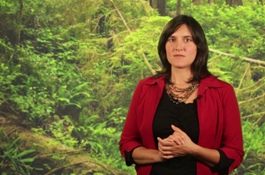Aboriginal Rights in Canadian Law
BC Mining Issue:Canada’s common law test for recognizing and protecting Aboriginal rights is extremely complex, costly, and difficult to meet.
Fair Mining Best Practice:Legislate constitutional provisions that explicitly recognize and protect various types of Aboriginal rights, including title, culture, traditional uses, legal governance systems, and traditional territories.
In Canada, Aboriginal rights are legally defined as unique communal rights that may be exercised by virtue of an individual’s ancestrally-based membership in a present community.
“Tlingit law is our identity” — Teslin Tlingit Nation
Aboriginal rights are unique to a peoples’ customs, laws and traditions but may include:
- Rights to land (Aboriginal title)
- Rights to hunt and fish
- Rights to practice anything that was essential to the cultural prior to European contact.
In BC, First Nations must complete an extremely complex, costly and difficult to meet, legal test to claim the recognition of Aboriginal rights in non-treaty areas (land that has not been ceded or surrendered by treaty). The test set out by the Supreme Court includes the following conditions:
- the land must have been occupied prior to sovereignty (before 1846 – the year of the Treaty of Oregon with the United States, that divided what is now present day BC from the Oregon Territory)
- if present occupation is used to prove pre-sovereignty, there must be a strong link between present and past occupation, and
- at sovereignty, that occupation must have been exclusive.
To date, no First Nation in Canada has succeeded in establishing Aboriginal title for the entirety of their territory under this common law test.
One possible solution to Canada’s failure to consistently and adequately recognize First Nation rights and title is to show working examples from other countries that recognize and protect (legally or constitutionally) several types of Indigenous rights including:
- Rights in mining legislation.
- Rights to traditional use of land and the preservation of culture.
- Granting equal weight to both Indigenous and scientific knowledge.
- Protection of Indigenous knowledge and languages.
- Recognizing the right to self-government.
- Rights to own and manage traditional territories.
- Rights to a healthy environment.
Learning from other regions where rights have been recognized and protected, may help empower communities and advocate change in current BC and Canadian mining laws.
Under Ghana’s Constitution, Indigenous peoples’ rights of ownership over ancestral domains include the right to develop land and natural resources.

